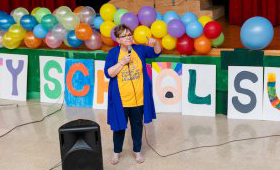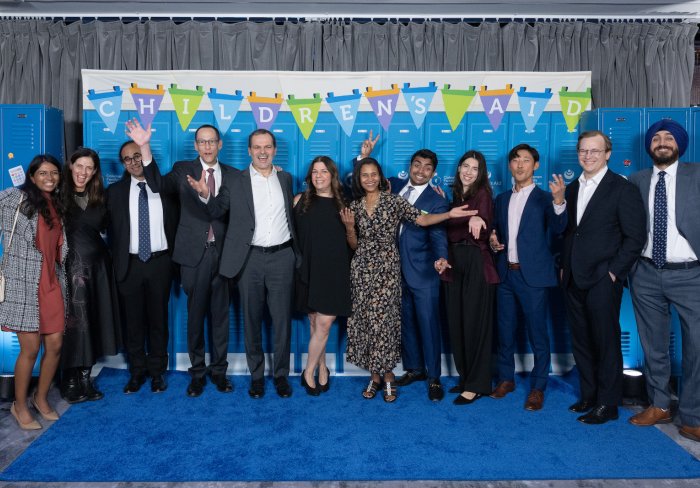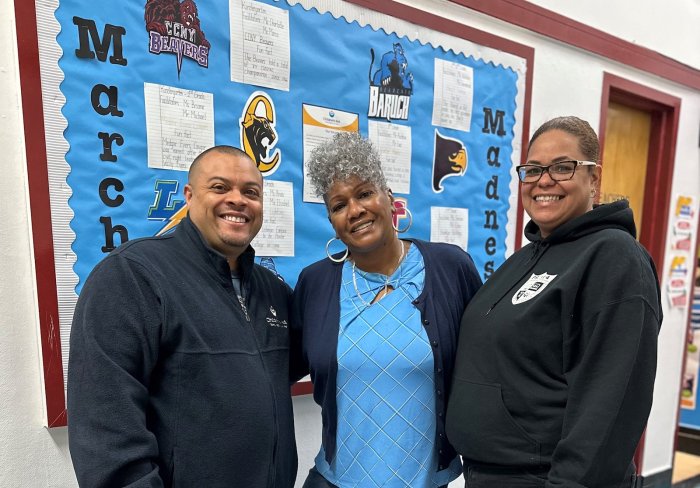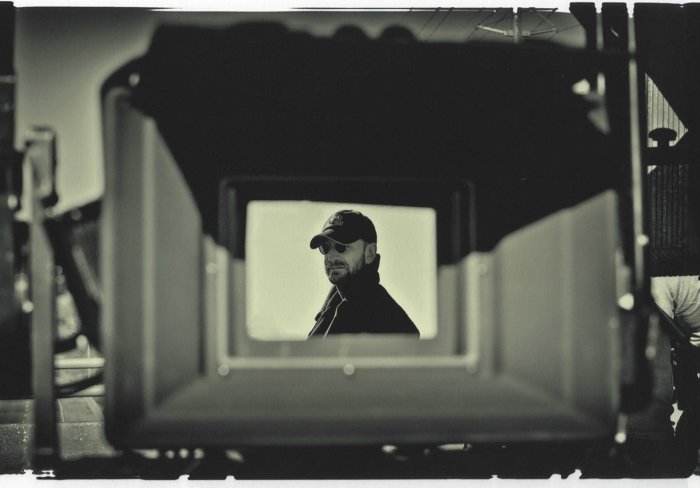At Children’s Aid, we pride ourselves on supporting young people from cradle through college.
From preschool through high school, afterschool programs and summer camp, our staff have many opportunities to positively impact the lives of our children and families. To ensure our programs and services are continuously improving and reaching our clients at the right time, our Office of Performance Management uses data to inform best practices.
Nicholas Woo, assistant director of performance management, works with our Early Childhood, Youth, and Health and Wellness divisions to better understand how our services impact our young people. From capturing the number of young people we serve to analyzing how long a teen typically waits to be seen by our behavioral health specialists, Nicholas and his team help us make informed decisions about our work.
Born and raised in Alameda, California, Nicholas grew up in a tight-knit family with grandparents, aunts, uncles, and cousins living a short distance away. In high school, Nicholas participated in a policy debate program and had plans to work in foreign affairs. But he was also interested in education. After graduating from the University of California, Irvine with a degree in political science, he decided to go into teaching and received his master’s in education from Harvard University.
While working as a social studies teacher at a high school in San Francisco, Nicholas realized that young people required additional services earlier in their academic careers to realize their full potential.
“In my experience teaching, I started to see that the amount of resources that kids received at that stage was often times too little too late,” he said.
In 2012, Nicholas moved to New York and began working for a nonprofit in the South Bronx called Highbridge Voices. The organization served young people from fourth through 12th grades, allowing staff to provide services earlier in their academic journeys.
“Part of my hope there was being able to do some of that early intervention work, and I could also see all the kids from the same neighborhood – their trajectory from little kids through high school,” he said.
In his role as academic director, Nicholas started learning about adverse childhood experiences and how chronic stress and trauma can lead to poor health outcomes. This research inspired him to enroll at Columbia University’s Mailman School of Public Health, where he studied sociomedical sciences and delved deeper into the research.
“Not only did the research speak to the importance of early interventions, it speaks to the physiological impact that trauma has,” he said.
Later in his career, Nicholas transitioned into more data-driven roles that allowed him to utilize his interest in health research. He worked for the Mayor’s Office of Community Mental Health, known formerly as ThriveNYC, to track performance and metric outcomes for a number of services within the Department of Education, Department of Health and Mental Hygiene, Administration for Children’s Services, and Department of Youth and Community Development.
Nicholas’ varied experience – as a high school teacher, community school director, and senior manager at the Mayor’s Office of Community Mental Health, among others – perfectly prepared him for his role at Children’s Aid.
“That’s why this is such a great fit for me,” he said. “I get to use all of my intellectual and professional interests to work in those areas.”
Nicholas also credits his family’s educational and professional backgrounds for informing his work. While some of his grandparents had no more than an elementary school education, one of his grandmothers was privileged enough to attend college and later served as a principal at a school in San Francisco’s Chinatown. His father was the first in his family to go to college and became a computer engineer while his mother became a lawyer – both professions that require attention to details, systems, and processes.
“My parents went to UC Berkley and they, along with some aunts and uncles, were involved in the Third World Liberation Front and the fight to prevent evictions at the International Hotel in the 1970s, so there is a history of social justice,” he said. “One of the things that I try not to lose sight of is that I’ve been privileged enough to be at some of the best education institutions in the world. I’ve only had that opportunity because those before me have literally fought and died for me to sit at a desk.”
Nicholas, along with his team of five program analysts, work to identify metrics that accurately reflect our program operations. This data is used not only to make sense of the variety of programs we provide, but to improve outcomes.
For example, our Youth Division has begun using a more robust tool to screen and assess children’s social-emotional learning competencies. This additional data gives our staff granular information to identify what additional supports students may need. Nicholas and his team use data to ask the right questions for continuous improvement.
“The hope here is we’re using data to get kids the right support at the right time,” he said. “When we talk about continuous improvement, we mean building a critical approach to our programs and using data to drive those conversations. What do we think works? How do we know that? How do we supplement our anecdotal evidence and our stories?”
As he reflects on his career and his work serving mostly Black and brown communities, Nicholas understands he is part of a larger history.
“It’s not lost on me that there are very few people of Asian ethnicity working at Children’s Aid and nonprofits that primarily serve Black and brown folks,” he said. “Part of that is there is a history of solidary between Asian American, Black, and Latino communities that is overlooked and there is a level of divide and conquer trying to pit marginalized communities against one another. I think part of my work is a reflection of that history of solidarity and that history of shared oppression and shared struggle for liberation.”







